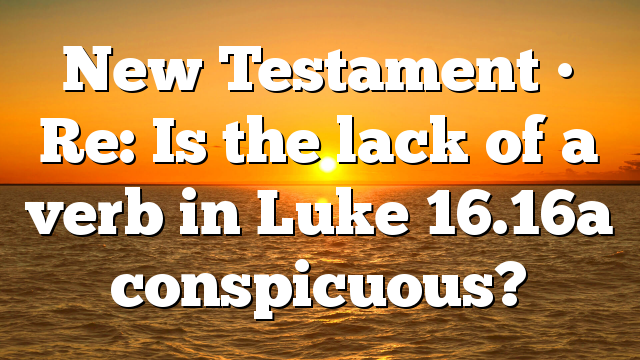Luke 19:7
I’ve been looking at the usage of καταλῦσαι in Luke 19:7 and am a bit stumped why it’s translated as “to be the guest of” (or a variation thereof) instead of to abolish, destroy, dissolve, etc.,
In light of the overall passage, it doesn’t make sense to use a derivative of abolish but I don’t understand either why it deviates so much from the other usages (i.e. Matthew 5:17, 61; Acts 5:39)
Statistics: Posted by Matt Lahey — June 19th, 2017, 6:47 pm



















